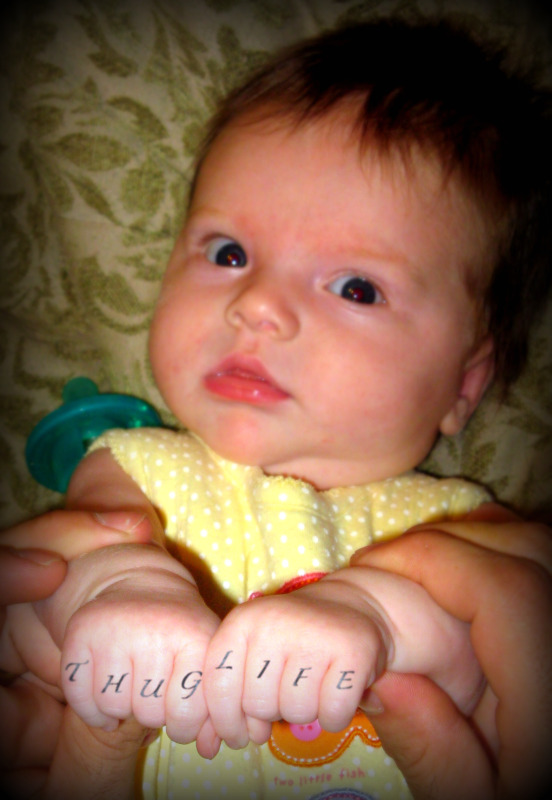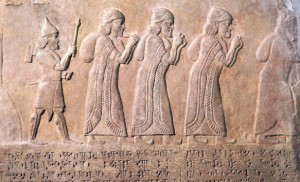10 Ideas
First… an apology to all my readers (all 8 of you… 6 if you don’t count Beth and my mom). On July 14th Beth and I started a series of ten top 10 lists. We tried to post daily, but unfortunately I have gotten a bit behind. That has partly been because of craziness in life, but also because I have been a lot of thought in this final list. So far we have explored the things that we enjoy, the things we want to do, and a few things about us. If you have followed along closely, you might have learned a bit about what type of person I am. I believe that underneath these lists are core ideas that define me as a person.
In reflecting on life these last two weeks, I have examined the concepts that drive me as a person. In my mind, they all are synergistic and guide my day-to-day living as well as the larger direction of my life. Here are the 10 ideas that define me as person.
- Trajectory of Redemptive History – I first picked up this phrase in Dr. Sandy Richter’s Intro to Old Testament my first semester at Asbury Seminary. Since then, it has been the primary way that I understand the work of God, God’s people, and the narrative of scripture. The idea is simple: Since the beginning of history, God has been working in and through his people to bring all of creation to redemption and restoration. I do not believe the world is constantly descending into more and more evil and pain, but rather, it is consistently moving to place where all wrongs are set right and life is as it should be. Martin Luther King Jr. expressed this concept when he said, ” The arc of the moral universe is long but it bends toward justice.” In regards to this central idea to my life, I must highly recommend Dr. Richter’s book The Epic of Eden.
- Kingdom of God – During the summer of 2006 Beth and I hosted a Bible Study for college students in our home. We looked through book of Matthew at all of Jesus’ references to the Kingdom of Heaven (Kingdom of God in other gospels). Simply put, it completely changed the way I viewed the message of Jesus. In the 6 months that followed, my entire approach to Christianity began to morph. This was one of the most formative and painful times in my life. The concept of the KofG is complex and simple at the same time. It is in essence the world where God gets his way — it is a world redeemed and restored. I am convinced Christians are a part of the KofG and called to bring it about. There is a constant tension between the “already” and the “not yet” of this idea. A good intro to this concept is N.T. Wright’s The Challenge of Jesus.
- Nature of Truth – During my time of theological and philosophical transition (which, while coinciding with my entry into Seminary, was probably more of a push back to what I was learning than the result of it) one of the primary things I gave thought to was the nature of truth and how we know what we know. I have written an extensive piece on my conclusions (this blog is actually titled after this paper). To summarize, I believe there is truth, but it can only be understood through our flawed human existence. Our worldview will always skew our perception. This has led me to be more humble in how I understand knowledge and open to others conclusions.
- Interpretive Communities – If truth is dynamic (or at least flexible in our understanding of it) how do we reach conclusions on what is? Stanley Fish has given me the framework for answering this question. Truth is shaped by the communities we are a part of. I have discussed the practicalities of this in this post.
- You must be the change you wish to see in the world – This quote is from Ghandi and is pretty self explanatory. I tend to be fairly cerebral and will process thoughts on societal change in my mind quite frequently. I constantly ask ‘What does it look like to have the Kingdom come on earth as it is in heaven.” Sometimes I think I have the answer, other times I am overwhelmed. But consistently, I must be reminded that knowing change is needed is useless if nothing is being done to bring it about. I have spent way too much time trying to convince others to change, when in reality, I must first embody the change I wish to see.
- Pacifism – I have increasingly found as I explore the implications of Kingdom theology that if I want to truely follow Jesus, it requires radical pacifism. This is one area where I feel my Mennonite brothers and sisters have a lot to teach mainstream evangelicals. This is a topic I wish to explore further in the coming weeks. Look for a full length post (or 3), but until then, I urge you to ponder the implications of this quote from MLK:
Peace is not merely a distant goal that we seek, but a means by which we arrive at that goal.
- Knowledge is power – This sounds odd to me when I list it out, but the essence of this idea play out regularly in my life. This does not mean the more degrees you get the more influence you have, or that the most powerful people are the most learned. Instead, it refers to ability. If I have knowledge of how to fix a lawn mower, I can help my neighbor out in a pinch. If I can speak another language, I can learn more about a person and their situation. If I understand a person’s situation, I can empathize and appreciate them more. Unfortunately, the withholding of knowledge can be used to oppress and subjugate. That is why I find great power in open and non traditional learning.
- Stewardship of Creation – Because of the way I view the world and the Kingdom of God, I hold firm to the belief that all people are called to participate in the protection and redemption of the world. While this included environmental responsibility, it also points to the belief that all people are part of a larger world and the needs of all must be considered.
- Umbuntu – This is an African concept that can loosely be translated “I am because we are.” It focuses on the interconnectedness of all people and the need for mutual respect. It also captures the way community identity shapes personal identity. It is the antithesis of individualism. In the past few decades, many of the leaders I most respect have used this idea to being about peaceful reconcilliation. Here is a clip of Desmond Tutu discussing the concept of Ubuntu:
httpv://www.youtube.com/watch?v=ftjdDOfTzbk - Prophetic Imagination – In his book The Prophetic Imagination, Walter Brueggemann discusses the role of the prophet in brining about a better world. He claims a prophet must be able to project a world as is it can be so we can see past the world as it is. In doing this, he identifies two modes: criticizing and energizing. Basically he says at times a prophet must speak out against injustices, and at other times a prophet must speak about things that can happen. However, at the end of the day, the prophet must embody this alternate reality. This tension between criticizing and energizing is put plainly by Ben Harper when he asks, “what good is a critic with no better plan.” In fact, his whole song “Better Way” exemplifies this concept.
httpv://www.youtube.com/watch?v=TILzJ-_4urk
Closing note:
As I upload this final post in the my series of ten Top 10 lists, I just wanted to say how much I have enjoyed writing them and have been encouraged by the response I have received. I am very thankful Beth decided to join me in writing out her lists. It was a great experiance to work through this process of self-reflection together. If you have not read her posts and are interested in them, you can view them here on her blog: A Sugar-Mamma’s Thoughts













